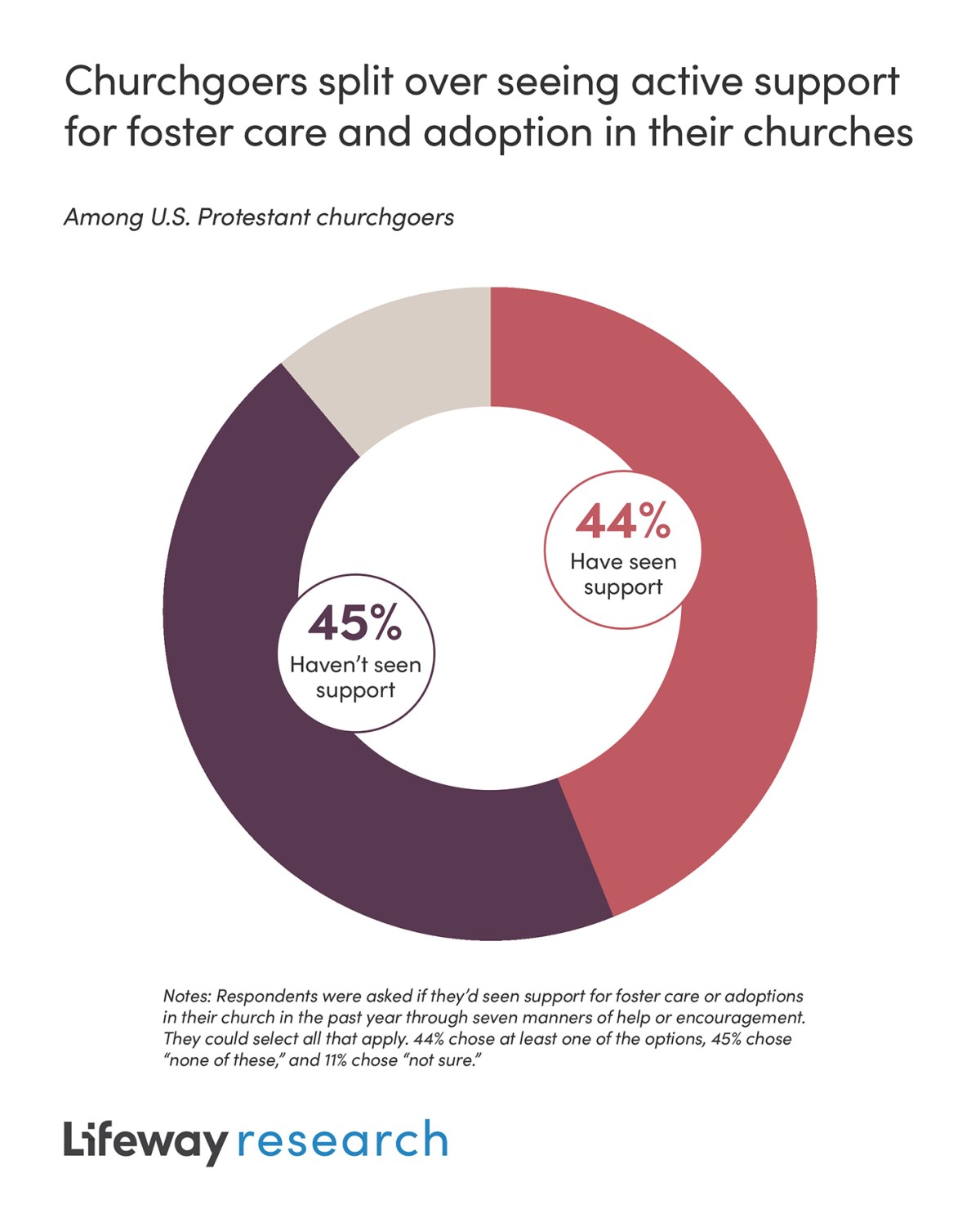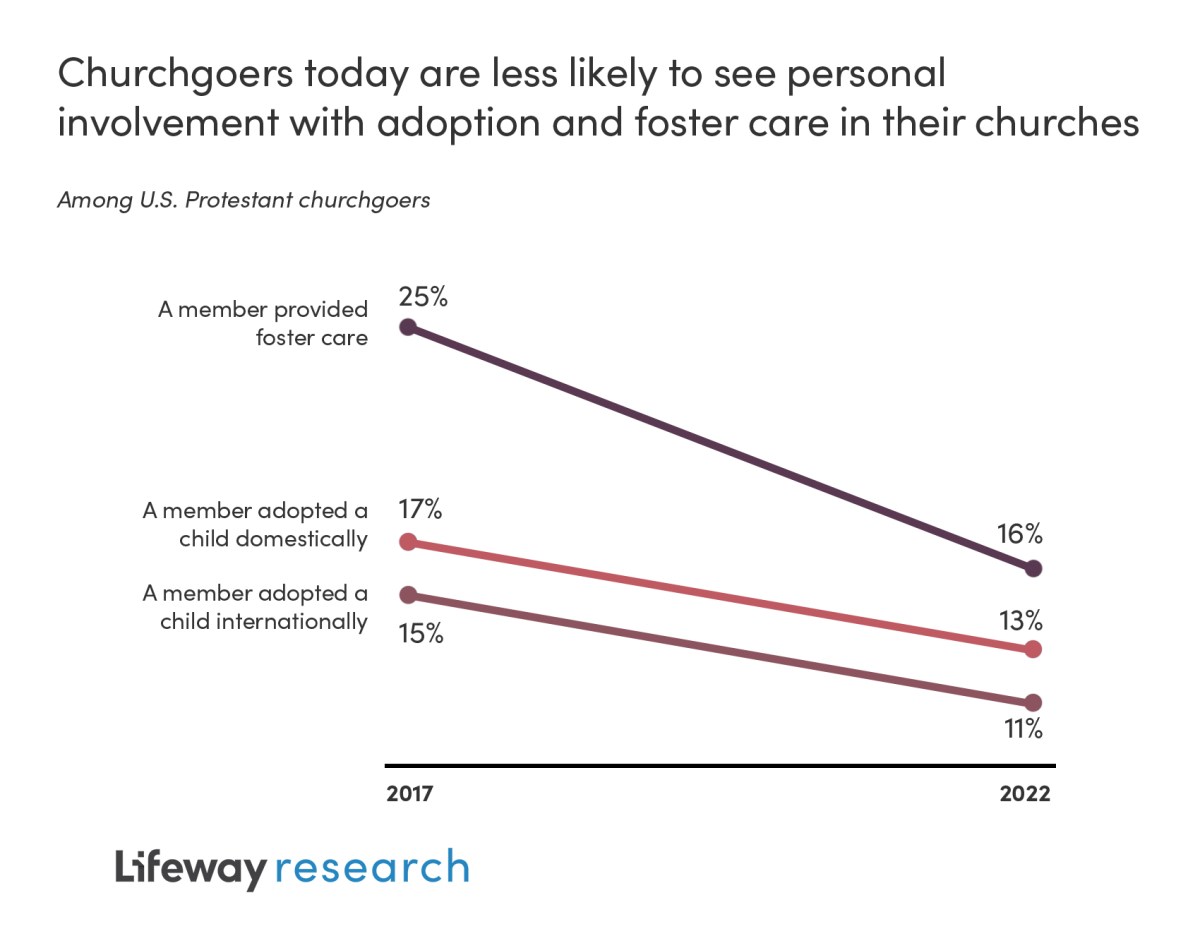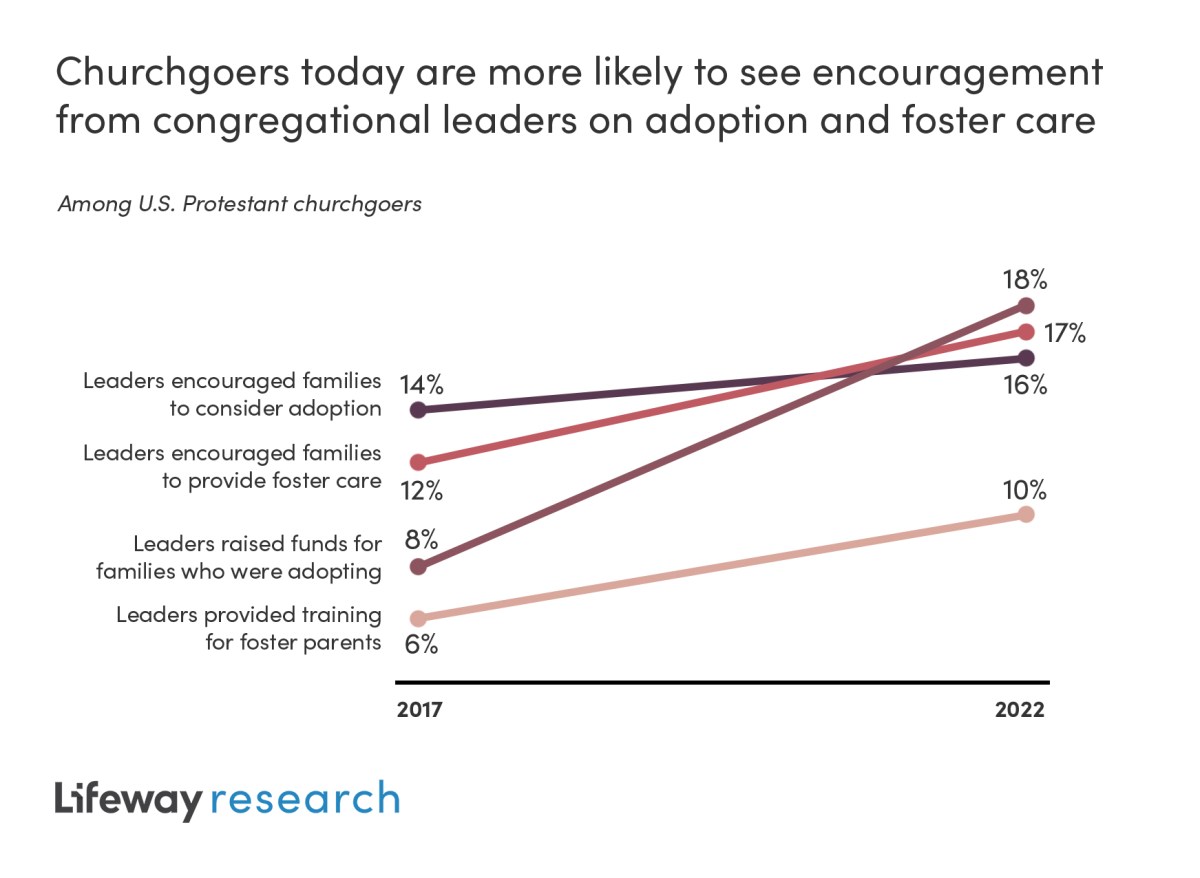More pastors are encouraging members to adopt and provide foster care at a time when adoptions have declined in the US.
A Lifeway Research study found more than 2 in 5 US Protestant churchgoers (44%) say their congregation and its leaders are proactively involved with adoption and foster care in at least one of seven ways.
A similar percentage (45%) say they haven’t seen other churchgoers or leaders provide any of the specific types of care or support, while 11 percent aren’t sure.
“Caring for the fatherless is repeatedly prioritized throughout Scripture,” said Scott McConnell, executive director Lifeway Research.
“But the Bible does not pretend caring for another like your own child is convenient or easy.”
Personally involved
More than 1 in 10 churchgoers say someone in their congregation has provided foster care (16%), adopted a child from the US (13%) or adopted a child from another country (11%) within the last year.
Compared to five years ago, fewer churchgoers say they’ve seen members of their church actively participate in adoption and foster care. In a 2017 Lifeway Research study, 25 percent of US Protestant churchgoers said a church member provided foster care, 17 percent said someone adopted domestically and 15 percent said a member adopted internationally in the past year.

Adoptions and the prevalence of foster care have fallen among all Americans in recent years. The number of US children in foster care dropped from 436,556 with 124,004 waiting to be adopted in 2017 to 391,098 with 113,589 waiting to be adopted in 2021, according to a report from the Adoption and Foster Care Analysis and Reporting System. Adoptions, both domestically and internationally, have declined as well.
Some experts have speculated, however, that the overturning of Roe v. Wade will result in increased strain on the foster care system and additional children in need of adoption.
In a Lifeway Research study conducted just prior to the Supreme Court’s decision on abortion rights, around 3 in 4 Americans (74%) said churches and religious organizations in states that restrict access to abortion have a responsibility to increase support and provide options for women who have unwanted pregnancies.
“It is likely the pandemic limited some families in considering foster care or adoption,” said McConnell. “But the need is still great in the US and could grow larger in states with abortion restrictions.”

Churchgoers in the parenting age range are often more likely to say they’ve seen someone in their church step up in these areas in the past year.
Those 18-34 (19%) and 35-49 (22%) are more likely than those 65 and older (10%) to say someone in their congregation has provided foster care. Churchgoers 35-49 (16%) are twice as likely as those 50-64 (8%) and 65 and older (9%) to say someone at their church adopted internationally, while those 18-34 (19%) and 35-49 (20%) are twice as likely as those 50-64 (10%) and 65 and older (8%) to have seen a domestic adoption in their church within the last year.
Nondenominational churchgoers (22%) are among the most likely to have seen foster care in their churches. Methodists are among the most likely to say a fellow church member has adopted either internationally (18%) or domestically (31%).
Raising awareness
Despite the decrease in churchgoers seeing members actively participate, many say within the last year they’ve heard leaders broach the subject and seek to support the issue in other ways.
Around 1 in 6 say their church leaders have raised funds for families who were adopting (18%), encouraged families to provide foster care (17%) or encouraged families to consider adoption (16%). Additionally, 10% say their church leaders have provided training for foster parents in the last year.
Churchgoers are more likely now to say they’ve seen leaders help in these ways compared to 2017. Five years ago, 12 percent of churchgoers said leaders encouraged members to provide foster care, 8 percent saw leaders raise funds for families who were adopting and 6 percent said leaders provided training for foster parents.
“While some forms of encouragement have become more common in churches in the last five years, 4 in 5 churchgoers have not seen or heard each of these forms of help or encouragement,” said McConnell.

Again, proximity to parenting age increases the likelihood of someone having seen leaders encourage members in these ways.
Churchgoers under 50 are more likely than those 50 and older to say they’ve seen leaders raise funds, encourage providing foster care and encourage adoption. Those 65 and older (4%) are the least likely to say they’ve seen leaders at their church provide foster care training.
Methodists are among the most active in providing assistance and encouragement. They’re among the most likely to say they’ve seen leaders raise funds for adoption in the past year (42%) and the most likely to say their leaders have encouraged churchgoers to consider adoption (48%) and provide foster care (41%).
Lacking assistance
Comparable to 2017, 45 percent of US Protestant churchgoers say their church hasn’t helped in any of these ways in the past year.
“Not every exhortation from pastors and church leaders is heard or understood by laity, but only a minority of churchgoers recognized encouragement for families to adopt or provide foster care this last year,” said McConnell.
Churchgoers 65 and older (59%) are the most likely to say they haven’t seen their church provide any of the assistance or support asked about in the study. Females (49%) are more likely than males (39%) to select “none of these.”
Denominationally, Presbyterian/Reformed (60%), Lutheran (55%) and Baptist (50%) churchgoers are more likely than Restorationist movement (26%) and Methodist churchgoers (20%) to say they their churches haven’t helped in these ways.














